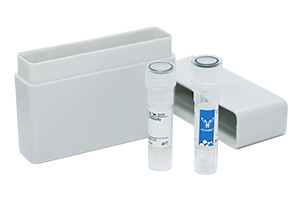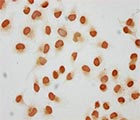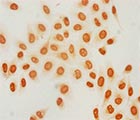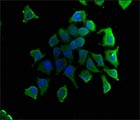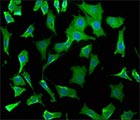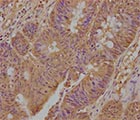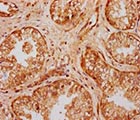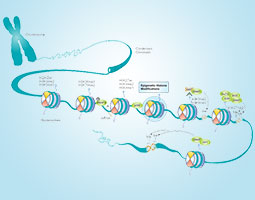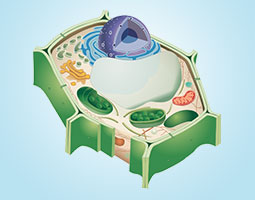Polyclonal Antibodies
Polyclonal antibodies are a diverse collection of antibodies that recognize multiple epitopes on a single antigen. Produced by immunizing animals with the target antigen, these antibodies offer robust binding capabilities and are ideal for detecting proteins with high sensitivity and specificity.
All antibody forms (polyclonal, hybridoma-based monoclonal and recombinant monoclonal) have advantages and disadvantages for development, validation and use. It depends on your project. Polyclonal antibodies are ideal reagents in assay-specific target discovery and detection. They display multi-epitope binding properties which make these reagents ideally suited for many applications. The clonal and biophysical diversity of polyclonal antibodies allows for greater sensitivity and utility in certain types of applications.
CUSABIO offers a comprehensive range of high-quality polyclonal antibodies, validated to ensure consistent performance and reliable results, empowering researchers to advance their scientific discoveries.
Product Features
CUSABIO polyclonal antibodies are all prepared with recombinant protein or native protein. Compared with peptide antibodies, affinity and specificity is superior. Moreover, there're more recognition of antigenic sites and have a much wider range of applications. Antibodies purified by affinity chromatography possess high purity.
As to quality control, CUSABIO proves the antibodies sensitivity and discriminating on natural proteins by rigorous ELISA test, and verify their specificity by Western blot test. It turns out that CUSABIO polyclonal antibodies have a broader scope of application and they a powerful tool for scientific research.
You will find more details on the images of validated applications.
Citations
SLC25A47 is a novel determinant of hepatic mitochondrial function implicated in liver fibrosis. Journal of Hepatology, 2022. (IF=25.083)
CUSABIO Antibody: YME1L1 Antibody, CSB-PA026267GA01HU
An Image-Based High-Throughput and High-Content Drug Screening Method Based on Microarray and Expansion Microscopy. ACS nano, 2023. (IF=18.027)
CUSABIO Antibody: TOMM20 Antibody, CSB-PA618983ESR2HU
Extracellular vesicles derived from Akkermansia muciniphila promote placentation and mitigate preeclampsia in a mouse model. Journal of extracellular vesicles, 2023. (IF=17.337)
CUSABIO Antibody: ompA Antibody, CSB-PA706579LA01RMS
AC-motif: a DNA motif containing adenine and cytosine repeat plays a role in gene regulation. Nucleic acids research, 2021. (IF=16.973)
CUSABIO Antibody: CDKL3 Antibody, CSB-PA150181; GAPDH Antibody, CSB-PA00025A0Rb
Mitochondria supply sub-lethal signals for cytokine secretion and DNA-damage in H. pylori infection. cell death & differentiation, 2022. (IF=15.828)
CUSABIO Antibody: TIFA Antibody, CSB-PA839301LA01HU
Click to see 25,000+ Citations of CUSABIO Products
Useful Resources
What are polyclonal antibodies?
As known to all, Polyclonal Antibodies represent a heterogeneous mix of antibodies from different B cells that recognize multiple epitopes on the same antigen. Each of these individual antibodies recognizes a unique epitope that is located on that antigen.
Polyclonal antibodies vs Monoclonal antibodies
Since polyclonal antibodies are mentioned, monoclonal antibodies are usually never left out. Both polyclonal and monoclonal antibodies have their own features.
Compared with Monoclonal antibodies, the advantages and disadvantages of polyclonal antibody have been presented as follows:
Advantages:
- The production of polyclonal antibodies is inexpensive and very quickly.
- Polyclonal antibodies offers greater sensitivity for detecting proteins that are present in low expression levels, as the target protein will bind more than one antibody molecule on its multiple epitopes (this is less advantageous for quantification experiments). This makes polyclonal antibodies great for detecting proteins at low concentrations.
- It is easy to store and more stable and tolerant of pH or buffer changing.
- Higher overall antibody affinity against the antigen due to recognition of multiple epitopes.
- In general, ability to detect multiple epitopes gives more robust detection.
- Ideal as the capture antibody in a Sandwich ELISA. Greater ability to quickly capture the target protein.
- Significantly more robust when assaying proteins that show slight variations in individual epitopes such as denaturation, polymorphism or conformational changes.
- Superior for use in detecting a native protein in multiple assay types.
- Much easier to couple with antibody labels. Less likely to affect binding capability.
Disadvantages:
- Variability between different batches produced in different animals at different times.
- Higher potential for cross reaction and non-specific signal due to recognizing multiple epitopes.
- Affinity purification of the serum will typically be required to minimize cross reactivity.

